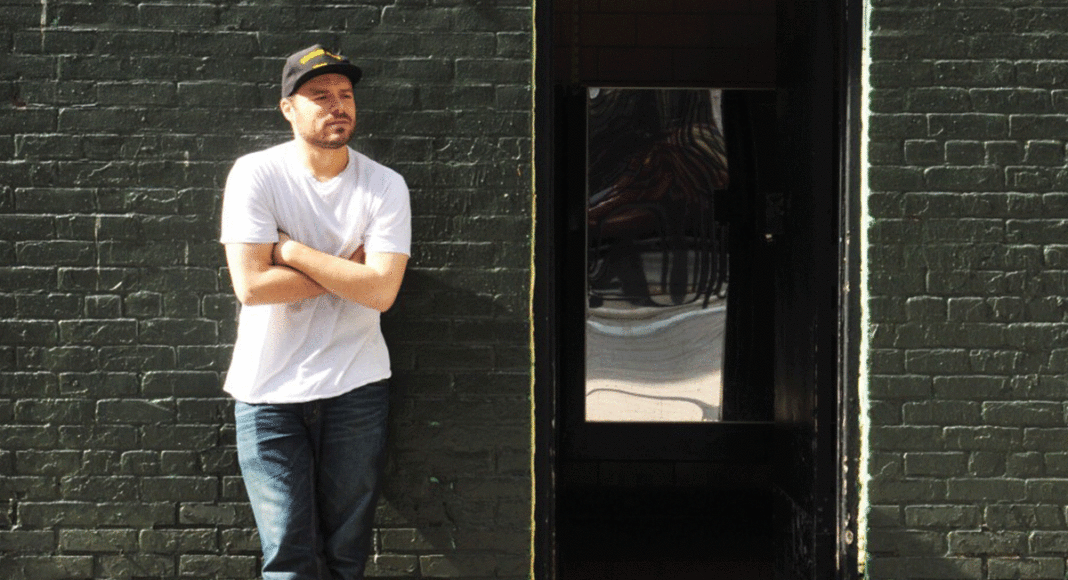Producer Blockhead has never worked with Justin Bieber, but he kind of wants to, despite building his entire career on collaborating with some of the most respected names in underground hip-hop.
“If Justin Bieber wanted to do a beat that I made, as is, then he could have that beat,” says Blockhead aka Tony Simon. “I’d be curious to know what he does with it, to be honest with you.”
For many pop music fans, the name Blockhead doesn’t ring a bell. But for a generation of hardcore hip-hop heads, he’s right up there with RZA, Pharrell and Dr. Dre as one of the greatest producers to ever do it. His brilliance isn’t as overt as some of the household beatmakers. There’s a moody atmospheric quality and subtle complexity to his beats.
As a young artist, he didn’t really know what he wanted to do. In the mid-90s, the young Manhattanite enrolled at Boston University, a stone’s throw from Harvard and MIT. Less than a year later, he dropped out.
His college career was a nonstarter, but one good thing came out of it: he met a fellow New Yorker on campus, a lanky guy named Ian Bavitz with a similar taste in rap. The two got along immediately. The rap world would soon know Bavitz by his stage name: Aesop Rock.
“Back in that era, you knew what kind of music people listened to by how they dressed,” Simon says over the phone. “You just see someone and you’re like, ‘That’s gonna be my friend. I know that person is into what I’m into.’”
Soon after meeting, the two began to collaborate. When Aesop Rock signed to tastemaking label Def Jux (founded by El-P, of Run the Jewels), Simon produced the lion’s share of the album, a production job that drew praise from Pitchfork for his “remarkably lush, cinematic spread of subtly weaving beats.”
“I made my beats on a cassette back then,” Simon remembers. “I’d just play them, and he’d be like, ‘I want that one, I want that one, I want that one.’ Then he’d write, and we’d make the song. It was a very simple time.”
During the Def Jux era, Simon made many of the label’s rappers’ best beats. Since then, he’s worked with a wide array of the underground’s finest: Open Mike Eagle, Murs, Billy Woods, and Cannibal Ox’s Vordul Mega.
By the mid-2000s, Simon had developed a taste for producing his own instrumental hip-hop music—a niche taste for sure, but a place where his subtle beat-making gifts shine. He crafts songs which trace a strange and invisible architecture, curling along the faultlines of their own internal logic.
“I find instrumental music in general to be pretty predictable and boring, so I purposefully make mine not that,” Simon says, describing his Frankensteinian process of beats chopped and sutured.
The process can be particularly complicated, but the results when done right are a disorienting kaleidoscope of sounds.
“I’m taking two or three beats that weren’t originally made together and kind of fusing them,” he says. “That leads to the whole song style that I’ve been doing the last four or five albums, where it starts at point A and ends at part C, instead of just A, B, A, B.”
The seven-minute “Festival Paramedics” from 2017’s Funeral Balloons opens with a piano melody straight out of Halloween, transforms into a pulsing mutant disco, and then settles into an odd lounge/juke hybrid complete with wood flute, soul horns, and an unfurling harp. Elements arise and disappear only to reappear at unexpected times, creating the odd contiguity of a cryptid skeleton. Live, things only get stranger.
“I have all the parts separated, then I sequence and mix and match. It’s like putting all my songs in a blender,” Simon says. “I add on vocals from other things—some of it’s kind of quirky, some of it’s kind of funny. It goes all over the place.”
It’s also a chance to see the producer in his element: sampling; mixing; pulling elements out of the ether and fusing them into alchemical combinations. He may not be working with mainstream pop stars anytime soon, but after 20 years in the game, Blockhead remains one of the strongest, most enduring undercurrents in hip-hop. Bieber take note.
Blockhead performs at 9 p.m. on Tuesday, Dec. 5, at the Catalyst, 1011 Pacific Ave., Santa Cruz. $15/adv, $18/door. 429-4135.














